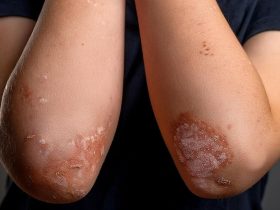Self-reported neurologic symptoms seem not to correlate with associated quantitative dysfunction
FRIDAY, Aug. 19, 2022 (HealthDay News) — Chronic neuropsychiatric symptoms are observed following COVID-19 infection, although self-reported symptoms are not associated with quantitative dysfunction, according to a study published in the October issue of Brain, Behavior & Immunity: Health.
Alex K. Chen, from the Medical College of Georgia at Augusta University, and colleagues recruited COVID-19-positive adult patients (50 percent African American) from inpatient and outpatient settings in Georgia to examine the severity and chronicity of neurologic findings observed during the acute phase of infection during a five-year period following infection. The study reported preliminary results from the first 200 patients who were 125 days past having a positive COVID-19 test, on average.
The researchers found that the most reported symptom in the study cohort was fatigue (68.5 percent). Overall, 30 percent of participants had hyposmia and 30 percent had hypogeusia. There was no correlation for self-reported neurologic dysfunction with dysfunction on quantitative neurologic testing. There were associations observed for self-reported symptoms and comorbidities with depression and anxiety. Compared with demographically matched controls, the study cohort performed worse on cognitive measures; on all quantitative cognitive testing, African American patients scored lower than non-Hispanic White patients.
“Novel findings include evidence that self-reported symptoms may not correlate with quantitative testing,” the authors write. “These data underscore the importance of quantitative testing in the accurate assessment of deficits.”
Copyright © 2022 HealthDay. All rights reserved.







